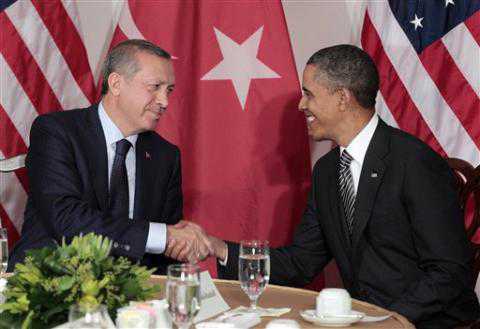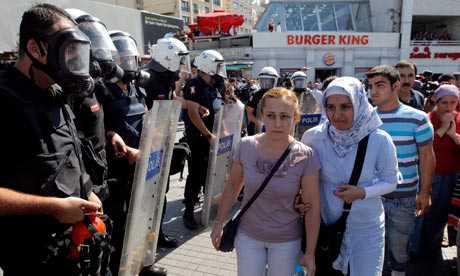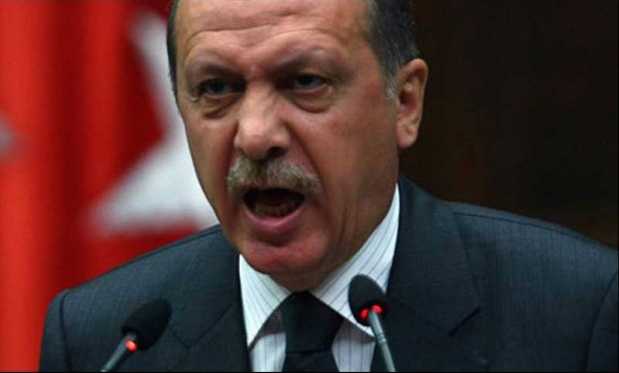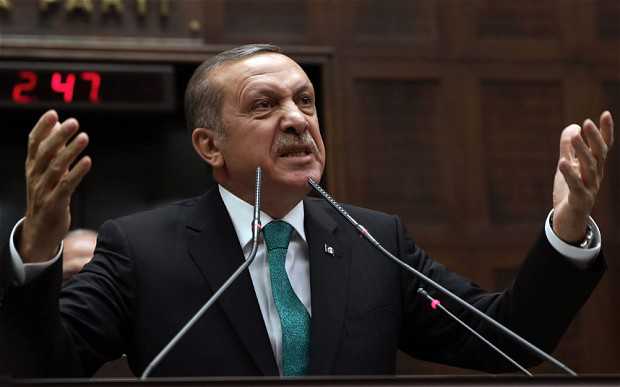Turkish Prime Minister Recep Tayyip Erdogan tells the ongoing tragedy in Somalia in an article he wrote for Foreign Policy, one of the leading magazines of the U.S.

“Somalia is suffering from the most severe drought and famine in the last 60 years, which has already resulted in the deaths of tens of thousands of people and endangers the lives of 750,000 more Somalis,” begins Erdogan in his article titled “Tears of Somalia”.
He continues on writing: “This crisis tests the notion of civilization and our modern values. It reveals, once again, that it is a basic human obligation to pursue international cooperation and solidarity to provide solace for those suffering from natural and man-made disasters.”
“It is not realistic to consider Somalia’s plight as caused solely by a severe natural disaster. We cannot ignore the fact that, in addition to the drought, the international community’s decision to leave Somalia to its own fate is also an underlying factor causing this drama.
Twenty years of political and social instability, lawlessness, and chaos have added enormously to the problems in Somalia. The horrifying truck bombing of the Transitional Federal Government’s ministerial complex on October 4 is just the latest evidence of this. The international community must not respond to this act of terrorism by retreating from Somalia, but by redoubling its efforts to bring aid to its people.”
“Nobody with common sense and conscience can remain indifferent to such a drama, wherever on earth it may be and whichever people have to bear it. Our urgent intervention as responsible members of the international community can contribute to the alleviation of the Somali people’s distress. However, the establishment of lasting peace and stability will only be possible through long-term, far-reaching, and coordinated efforts.”
“Turkey mobilized last month to help end this suffering. We consider this solidarity a humanitarian obligation toward the people of Somalia, with whom we have deep historical relations. Many of our institutions, NGOs, and people of all ages have made an extraordinary effort to alleviate the suffering of women and children in Somalia.
We are proud of the sensitivity and cooperation displayed by the Turkish people during the holy month of Ramadan. In the last month alone, approximately 280 million USD worth of donations for Somalia were collected in Turkey. The Turkish people’s generosity has served as an example to other donor countries as well as the international community, offering hope for the resolution of the crisis in Somalia.”
“The Turkish government has also moved decisively to help alleviate this humanitarian crisis. Turkey took the initiative to hold an emergency meeting of the executive committee of the Organization of the Islamic Cooperation (OIC) at the ministerial level on August 17. At this meeting, which was attended by the president of Somalia and high-level representatives from 40 member countries of the OIC, 350 million USD was committed to help relieve the famine in Somalia, and the participants agreed to increase this amount to half a billion dollars. The Turkish Red Crescent is also standing shoulder to shoulder with international aid organizations and is working to meet the needs of those in all the camps in the Mogadishu region.”
“Following the emergency meeting of the OIC executive committee, I — along with a number of Turkish ministers, some members of parliament, bureaucrats, business people, artists, and families — visited the country on August 19 to tell the people of Somalia that they are not alone. We visited the camps. We tried to give hope and encourage people who live in very different conditions from ours. We took note of the lack of such a high-level visit from outside of Africa to Somalia for the last 20 years, and informed the international community of this fact.”
“Turkey has decided to launch a major humanitarian effort to help restore normalcy to Mogadishu. To this end, we are preparing to provide assistance in the fields of health, education, and transportation. We will inaugurate a 400-bed hospital, provide garbage trucks for the streets of Mogadishu, build a waste-disposal facility to burn the accumulated garbage in the streets, pave the road between Mogadishu’s airport and the city center, renovate the parliament and other government buildings, dig water wells, and develop organized agricultural and livestock areas. Our embassy, which will be opened in Mogadishu shortly and headed by an ambassador who is experienced in the field of humanitarian aid and familiar to the region, will coordinate these activities.”
“By supporting the restoration of peace and stability efforts, we will work with the Transitional Federal Government and other institutions in Somalia in order to launch the development process of this shattered country. To this end, we expect all Somali authorities to demonstrate an extraordinary effort in unity, integrity, and harmony.”
“The success of aid operations is directly linked to the establishment of security. The withdrawal from Mogadishu of armed elements in the al-Shabab organization is clearly a positive development for security in the region. But this is not sufficient. Moving the Somali-related U.N. offices currently located in Nairobi to Mogadishu will be a positive step to support this process and one that should be taken without delay.”
“Neighboring countries such as Ethiopia and Kenya bear a special responsibility regarding the restoration of peace and stability in Somalia. The Intergovernmental Authority on Development and the African Union will also share this responsibility, and Turkey supports them in their tasks. In line with the Djibouti peace process, Somalia’s Transitional Federal Government should intensify efforts at reconciliation by maintaining dialogue with all fighting groups and pledge prosperity, brotherhood, order, and prosperity in return for peace.”
“The military contribution provided by Uganda and Burundi within the African Union Mission in Somalia (AMISOM) to prevent chaos and terror deserves appreciation. With this opportunity, I would like to issue a call to all neighboring countries, including Eritrea, to increase their existing efforts for the establishment of peace and security in Somalia and to enhance long-term regional stability.”
“In Turkish culture, it is believed that something good will come out of all bad experiences. In Somalia, too, this disaster can mark the beginning of a new process by focusing international humanitarian efforts and global attention on the plight of the region. However, this situation will only be sustainable if we continue to be sensitive to the needs of the Somali people.”
“The tears that are now running from Somalia’s golden sands into the Indian Ocean must stop. They should be replaced by hopeful voices of a country where people do not lose their lives because of starvation and where they express their eagerness to develop and restore peace and stability. Regardless of which culture we come from or where we live, I am confident that our common heritage as human beings will motivate us to ease the suffering of Somalia.”
AA






